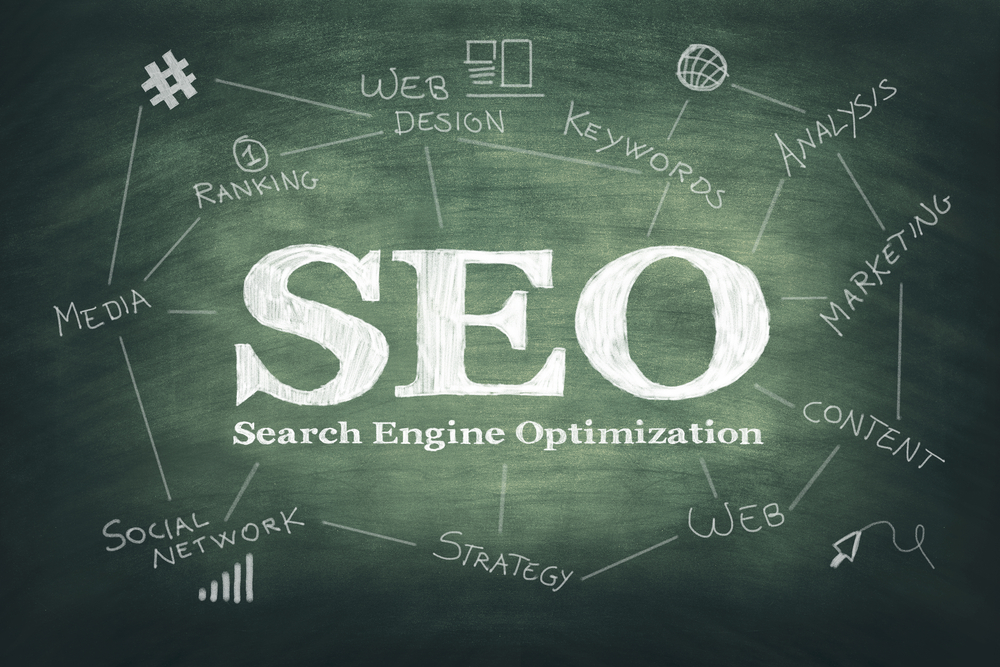
The Ultimate Guide to SEO and Link Building: Proven Tips and Clever Tricks!

In today's digital landscape, search engine optimization (SEO) plays a crucial role in driving organic traffic to websites. Whether you're a business owner, a marketer, or a curious individual, understanding SEO and link building is essential for success in the online world. In this comprehensive guide, we will delve into the world of SEO/SEM , providing you with proven tips and clever tricks to improve your website's visibility and achieve higher search engine rankings.
1. Introduction to SEO (or SEM)
Search engine optimization refers to the practice of optimizing websites to increase their visibility and rank higher in search engine results pages (SERPs). SEO encompasses various strategies, including on-page optimization, off-page optimization, technical SEO, and content creation. The primary goal of SEO is to attract quality organic traffic to a website, resulting in higher conversion rates and business growth.
2. On-Page Optimization
On-page optimization involves optimizing individual web pages to improve their search engine rankings. Here are some essential on-page SEM/SEO factors to consider:
- Keyword Research: Conduct in-depth keyword research to identify the most relevant and high-potential keywords for your website. Incorporate these keywords naturally into your content, meta tags, and headings.
- Title Tags and Meta Descriptions: Craft compelling title tags and meta descriptions that accurately reflect the content of each page. Including keywords in these tags can improve click-through rates from search engine results.
- URL Structure: Create SEO (search engine optimization) -friendly URLs that are concise, descriptive, and include relevant keywords. Incorporate hyphens to separate words within the URL.
- Heading Tags: Use HTML heading tags (H1, H2, H3, etc.) to structure your content and make it more readable for both users and search engines. Include relevant keywords in your headings to signal the importance of specific topics.
- Internal Linking: Establish a strong internal linking structure to help search engines understand the hierarchy and relevance of your website's pages. Include anchor text that includes relevant keywords.
3. Off-Page Optimization
Off-page optimization focuses on improving your website's reputation and authority through external factors. The most crucial off-page SEO factor is link building. Here are some effective link building strategies:
- Guest Blogging: Contribute high-quality guest posts to reputable websites in your niche. Include relevant links back to your website, signaling to search engines that your website is a trusted source of information.
- Social Media Engagement: Actively engage with your audience on various social media platforms. Encourage social sharing of your content to generate natural backlinks.
- Influencer Outreach: Collaborate with influencers or industry experts to create valuable content. Their endorsement of your website can significantly improve your online visibility and credibility.
- Online Directories: Submit your website to reputable online directories in your industry. These directories serve as valuable backlinks and can generate additional organic traffic.
4. Technical SEO
Technical SEO involves optimizing the technical aspects of your website to improve its crawling and indexing by search engines. Here are a few technical SEO tips:
- XML Sitemaps: Create and submit XML sitemaps to search engines to ensure all pages are indexed properly.
- Website Speed: Optimize your website's loading speed to improve user experience and search engine rankings. Compress images, minify CSS and JavaScript files, and leverage browser caching.
- Mobile Optimization: In today's mobile-first era, ensure your website is mobile-friendly and responsive. Google prioritizes mobile-friendly websites in search engine rankings.
- Structured Data Markup: Implement structured data markup (Schema.org) to provide search engines with additional information about your website's content. This can enhance search results with rich snippets, increasing click-through rates.
5. Content Creation and SEO
Content is king in the world of SEO. Creating high-quality, relevant, and engaging content is crucial for search engine rankings. Here are some SEO-friendly content creation tips:
- Keyword Optimization: Incorporate relevant keywords naturally throughout your content, including in the title, headings, body, and meta tags. However, avoid keyword stuffing, as it can harm your rankings.
- Unique and Valuable Content: Develop unique and valuable content that stands out from the competition. Provide insights, solutions, and actionable advice to engage your audience and encourage them to share your content.
- Multimedia Elements: Make your content visually appealing and interactive by incorporating images, videos, infographics, and other multimedia elements. Optimize these elements with descriptive file names and alt tags, including relevant keywords.
- Regular Updates: Keep your website's content fresh and up to date. Regularly publish new blog posts, articles, or other types of content to attract returning visitors and signal to search engines that your website is active.
Frequently Asked Questions:
Q1. How long does it take to see results from SEO efforts?A1. SEO is a long-term strategy, and results can vary depending on multiple factors such as competition, website age, and optimization efforts. Generally, it takes several months to start seeing significant improvements in search engine rankings and traffic.
Q2. Is link building more important than on-page optimization?
A2. Both link building and on-page optimization are crucial components of a successful SEO strategy. While good on-page optimization lays a strong foundation, quality backlinks can significantly enhance your website's authority and visibility.
Q3. Should I prioritize SEO or user experience?
A3. User experience and SEO go hand in hand. While optimizing your website for search engines is essential, it should never come at the expense of user experience. Strive to create a seamless and engaging user experience while adhering to SEO best practices.
Q4. Are there any shortcuts or quick SEO tricks?
A4. SEO is an ongoing process that requires patience and consistent effort. Avoid shortcuts or black hat SEO techniques that violate search engine guidelines, as they can lead to severe penalties and harm your online reputation.
Q5. How can I keep up with the latest SEO trends and updates?
A5. SEO is an ever-evolving field. Stay up to date by following reputable industry blogs, participating in SEO forums, and attending relevant conferences. Experiment, test, and adapt your strategies to keep pace with the latest SEO trends.
In conclusion, mastering the art of SEO and link building is essential to improve your website's visibility, increase organic traffic, and achieve higher search engine rankings. By implementing the proven tips and clever tricks outlined in this guide, you'll be on your way to attracting more visitors, boosting conversions, and staying ahead of your competition in the dynamic online world.
Remember, SEO is an ongoing process that requires continuous learning, adaptation, and optimization. Embrace the challenge, follow best practices, and watch your website soar to new heights!
Other useful resources
- https://www.seoguru24.com/promote-website/
- https://www.seoguru24.com/services/
- https://www.seoguru24.com/topics/seo-and-link-building-tips/
- https://en.wikipedia.org/wiki/Search_engine_optimization